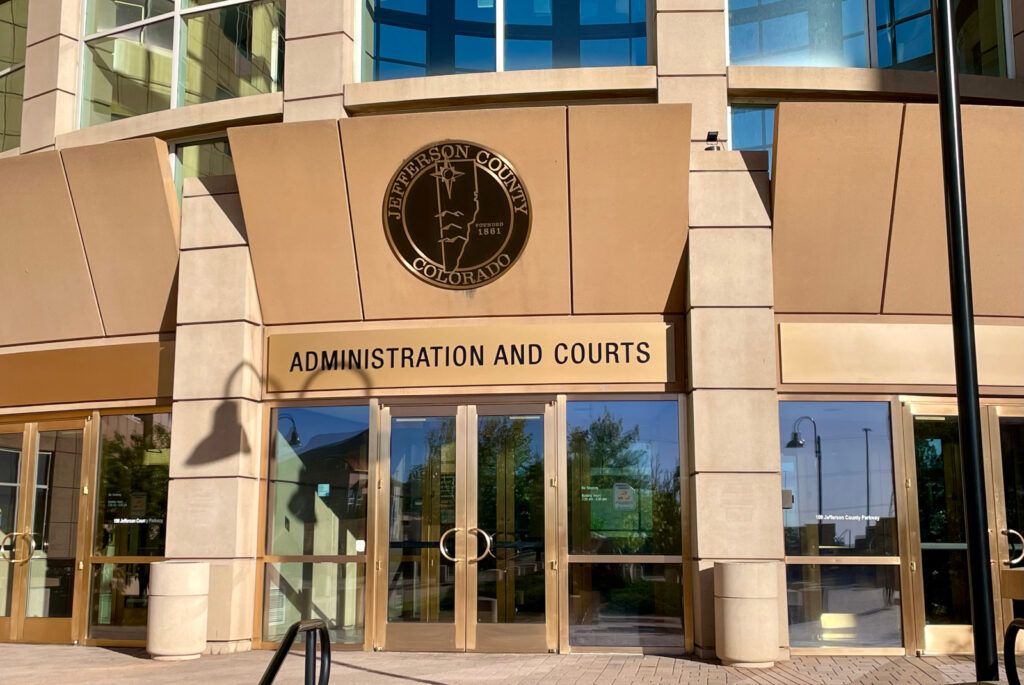By Jeffrey A. Roberts
CFOIC Executive Director
A judge Friday ordered the Lakewood Police Department to release blurred body-worn camera footage of officers shooting and killing a 17-year-old crime suspect in March 2023.
The city withheld the video from Scripps News journalist Lori Jane Gliha, contending it was required to do so by the Colorado Childrens Code — which restricts the disclosure of most juvenile records — and privacy provisions in the Law Enforcement Integrity Act, passed by the legislature in 2020 following the killing of George Floyd.
But Jefferson County District Court Judge Chantel Contiguglia found that the footage must be released under the four-year-old statute.

“I don’t see that there is a choice,” Contiguglia said, ruling from the bench during a morning hearing. “I see that it has to be disclosed with a plain reading of the law.”
The “entirety” of Mariana Martinez’s head and face must be blurred before the video is released because of the “distinct coloring of her hair,” added the judge, who earlier reviewed the footage in private.
Prior to the enactment of Senate Bill 20-217 and a follow-up bill in 2021, law enforcement agencies could treat body-cam footage like other criminal justice records, withholding or redacting it upon a determination that disclosure would be “contrary to the public interest.” But under the new statute, unedited video and audio of incidents “in which there is a complaint of peace officer misconduct” must be released to the public no later than 21 days after a request is made or 45 days from the date of an allegation of misconduct if the video “would substantially interfere with or jeopardize an active or ongoing investigation.”
Redactions are allowed if a video “raises substantial privacy concerns” for criminal defendants, victims, witnesses, juveniles or informants.
Patrick Freeman, a Lakewood senior city attorney, cited an additional provision concerning the release of footage to a deceased victim’s family “if blurring is insufficient to protect the substantial privacy interest.” Because it allows a victim to waive their privacy right, the provision “places the decision of public release squarely in the hands of the privacy holder,” he argued in a court filing.
Freeman noted that the family of Martinez objected to public release of the footage, and he argued that the Children’s Code bars the release of body-cam footage “depicting the juvenile during any portion of the crime.”
But Contiguglia said “blurring is sufficient” to protect Martinez’s privacy and the Children’s Code provision cited by Freeman is not “what controls.”
Scripps News’ attorney Steve Zansberg argued that blurring of the footage isn’t required under the Law Enforcement Integrity Act because Martinez wasn’t a “victim.” The statute, he noted, references a separate law on victims’ rights that defines victim as “any natural person against whom any crime has been perpetrated or attempted.” Zansberg, who is president of the Colorado Freedom of Information Coalition, also cited case law that “decedents have no cognizable right of privacy.”
In September 2023, First Judicial District Attorney Alexis King found that Lakewood officers’ use of deadly force against Martinez, a robbery suspect, “was legally justified to defend themselves and others from the threat posed by Miss Martinez.” No criminal charges would be filed against the agents, she added.
According to a news story, police initially said Martinez fired at them but clarified the next day that she pointed a gun at them. King’s letter says an officer saw Martinez “pull a black handgun from her hoodie pocket and point the gun” at another officer and himself.
“I agree she was not a victim of a crime,” Contiguglia said in court Friday. “She is a victim in some sense because she was killed. And that is undisputed.”
The judge said she would not order the muting of audio portions in the body-cam footage, as requested by Freeman, because the Law Enforcement Integrity Act doesn’t authorize audio redactions. Freeman had asked that Martinez’s “last words and moments” be muted.
“I certainly would hope that any individual using the video would use their best judgement for that,” Contiguglia added.
The judge gave Lakewood until June 10 to provide the footage to Scripps News.
Follow the Colorado Freedom of Information Coalition on X (formerly Twitter) @CoFOIC. Like CFOIC’s Facebook page. Do you appreciate the information and resources provided by CFOIC? Please consider making a tax-deductible donation.




